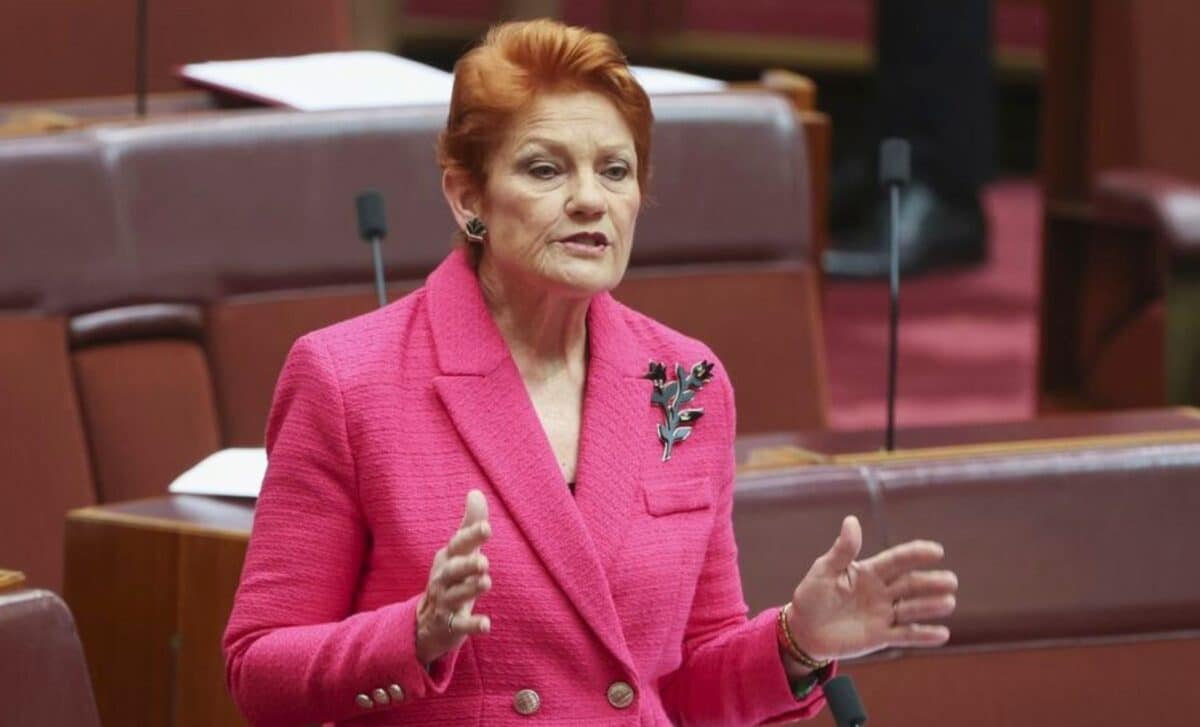A new proposed tax cut could provide a financial boost for certain Australian couples, but experts argue it might further complicate an already struggling taxation system. The proposal, put forward by Pauline Hanson’s One Nation, suggests that couples with children should be able to split their income evenly across their tax returns, potentially reducing their total tax bill.
Supporters see it as a win for families, but critics warn it disproportionately benefits high-income earners and could discourage workforce participation, particularly among women. With Australia’s tax system long overdue for an overhaul, is this policy a step forward or a dangerous distraction?
How the Proposed Tax Cut Works
Under One Nation’s plan, a couple could split their total income, which would allow more of it to be taxed at lower rates. Jennifer Game, a One Nation candidate, claimed that a couple earning $120,000 and $30,000 respectively would save $2,022 by shifting to an even $75,000 each.
In reality, due to changes in the 2023-24 tax brackets, the actual savings would be closer to $2,100. While that may sound like a good deal for affected couples, the broader implications of such a policy raise red flags among economists.
Who Really Benefits?
Greg Jericho, chief economist at the Australia Institute, isn’t convinced. “I don’t think it has merit at all,” he told 9News.
“The main problem is it really just benefits high-income earners, and it also acts as a disincentive for mostly women to enter the workforce.”
His concern isn’t new. Income splitting has been debated for years, often criticized for favoring single-income families while doing little to support dual-income households or lower earners. In short, it’s a tax cut that works best for those already doing well.
Australia’s Tax System: Broken for over a Decade
Australia’s taxation system has been in urgent need of reform for over 15 years. In 2009, former Treasury secretary Dr Ken Henry released a comprehensive tax review, proposing 138 recommendations for a modernized, fairer tax system.
Almost none of them were implemented.
“We’re in a worse position now than we were 15 years ago,” Henry told the ABC last year, calling it an intergenerational tragedy.
Rather than cutting taxes in a way that favors the wealthy, experts argue that a serious rethink of tax structures is needed—one that ensures big corporations and high-income individuals pay their fair share.
The Real Tax Problem: Who Isn’t Paying Enough?
Jericho argues that Australia’s tax system relies too heavily on personal income tax, while businesses and the ultra-rich enjoy loopholes and exemptions. He points to areas like:
- Superannuation tax concessions
- Capital gains tax discounts
- Fuel tax credits
- Private trust loopholes
- Luxury car tax exemptions for utes
Then there’s the petroleum resources rent tax (PRRT), which Jericho calls “a joke” due to the loopholes allowing massive gas and mining companies to avoid paying their fair share.
Is Australia Really Overtaxed?
Despite popular belief, Australia is not a high-tax nation. A 2024 report shows Australia’s tax-to-GDP ratio is 29.4%, far below countries like:
- Denmark (43.4%)
- Finland (42.4%)
- Norway (41.4%)
- Luxembourg (40.9%)
Even compared to the OECD average of 33.9%, Australia lags behind. Jericho argues that if Australia simply taxed at the OECD average, the government could raise an extra $135 billion a year—money that could be used to reduce poverty, improve healthcare, and boost public services.
Will Meaningful Reform Ever Happen?
Tax reform in Australia has been politically toxic, with successive governments avoiding serious changes. However, last year’s revamped Stage 3 tax cuts proved that political courage can win public support.
“If the government was to say, ‘We’re reducing tax loopholes for the richest 10% to fund dental care in Medicare,’ that’s a political winner,” Jericho said.
But for now, major reform remains a distant dream. Instead of addressing systemic problems, new tax cuts like One Nation’s proposal risk making inequality worse, rather than fixing the system for all Australians.









